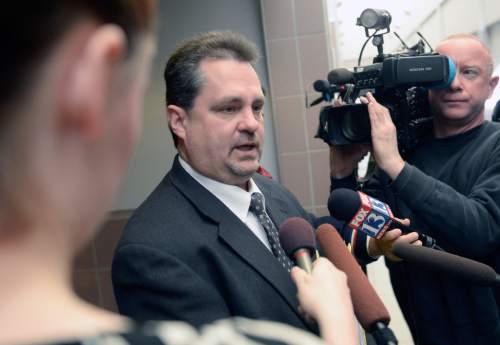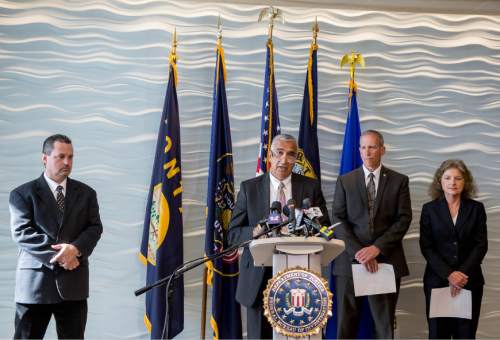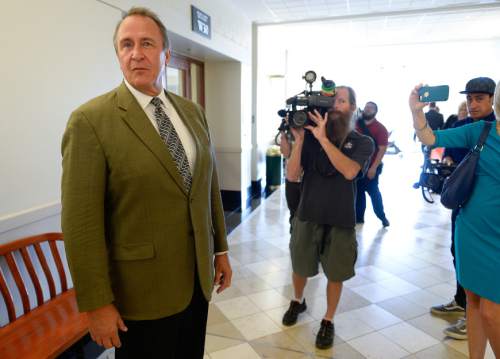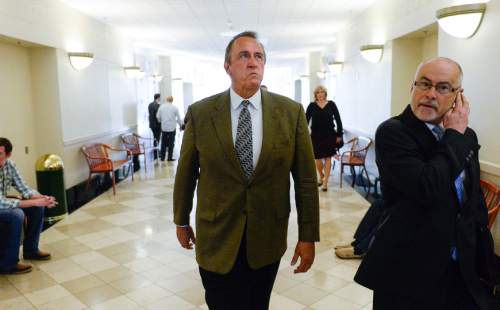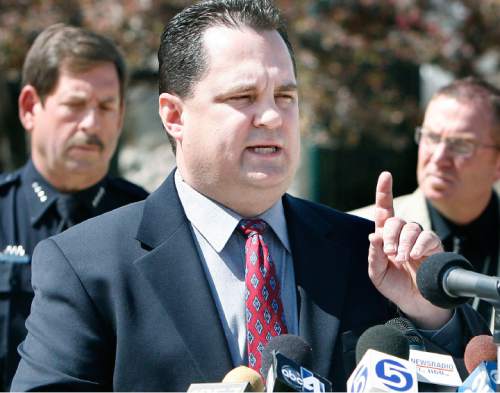This is an archived article that was published on sltrib.com in 2016, and information in the article may be outdated. It is provided only for personal research purposes and may not be reprinted.
Now, it's Davis County Attorney Troy Rawlings versus the feds, likely without the distraction of the prosecution of former Utah Attorney General Mark Shurtleff to get in the way.
On Monday, Rawlings let his headline-grabbing motion to dismiss the criminal corruption case against former Utah Attorney General Mark Shurtleff speak for itself. But, on Tuesday, he issued a statement that slapped back in a dispute over whether federal law enforcement failed to provide all evidence in their possession that was relevant to the Shurtleff prosecution, one of the reasons Rawlings cited in asking for dismissal of the high-profile case.
Even if 3rd District Judge Elizabeth Hruby-Mills approves Rawlings' motion — or those by Shurtleff's attorneys also seeking dismissal — the Davis County prosecutor indicated he isn't about to let his fight with federal authorities melt away.
In his motion, Rawlings cited a cooperation agreement with Shurtleff under which Utah's former top cop has provided "significant and important information and will continue to do so, even testimony as needed."
That signals Rawlings intends to continue an ambitious investigation, called "Rogue Runner," that he wants to bring before a state grand jury.
Rawlings' motion prompted a statement Monday from the U.S. attorney's office for Colorado, which started handling legal matters having to do with the Shurtleff case and the parallel one involving Shurtleff's successor, former Attorney General John Swallow, after the U.S. attorney's office in Utah bowed out in 2013 because of an undisclosed conflict of interest.
"The FBI produced hundreds of thousands of documents electronically in connection with the case," the statement said. "The FBI believes it has shared all relevant documents and information in its possession related to the prosecution of Mr. Shurtleff."
On Tuesday, Rawlings said the issue wasn't whether the FBI had provided documents but rather what the Department of Justice chose to "ignore/disregard" and "what it did not and will not produce."
Rawlings' statement spelled out a number of questions that appear to show where he wants to take a grand jury — and that's possibly all the way to Washington.
He cites the now well-known assertions of St. George businessman Jeremy Johnson, who has said that Swallow helped him set up a meeting with another Utah businessman in which they cooked up a scheme to "bribe" — Swallow has termed it "lobby" — then-Senate Majority Leader Harry Reid, D-Nev., to stall an investigation by federal regulators of Johnson's online marketing company.
Johnson said in various places that he thought such a scheme would work because he believes a similar effort to enlist Reid's support was carried out by online-poker interests.
The Justice Department's Public Integrity Section, which took over the Shurtleff-Swallow probe after the U.S. attorney's office for Utah backed away, ended its investigation a few months later without filing charges. Rawlings, in his statement Tuesday, wondered why the Justice Department didn't charge Johnson, Swallow and others with bribery or attempted bribery.
"Was the FBI allowed to investigate any of the above fully when the case against Mr. Swallow was being investigated?" he asked. "... Were they even allowed to address these matters fully, or were they shut down?"
Rawlings also wondered whether investigators backed off — or were told to do so — because Reid, then the nation's most-powerful senator, was "critical to the White House?"
He questioned why the U.S. attorney's office for Utah vigorously pursued Johnson on 86 criminal charges related to his online marketing company — he ultimately was convicted on eight counts — while failing to charge him, Swallow and others for bribery.
"Johnson admitted to it unless the [U.S. attorney's office] actually considers such conduct to be legal as long as it is called lobbying," Rawlings wrote. "Or is there another reason they and the local FBI were not allowed to address this?"
Federal law officials declined to comment on Rawlings' latest missive.


